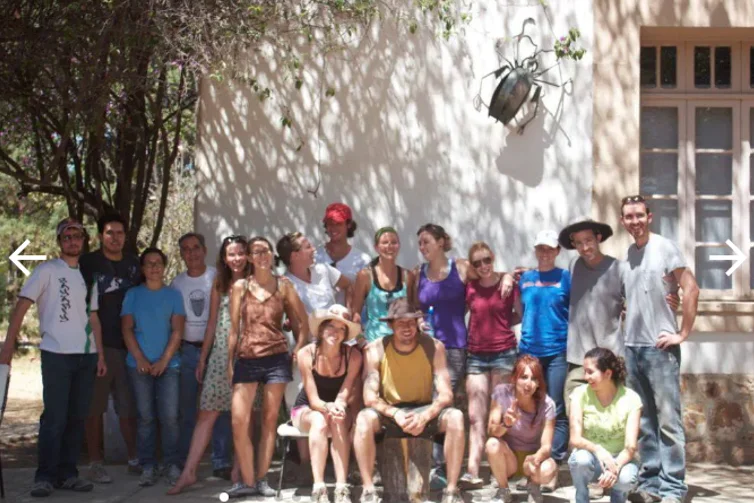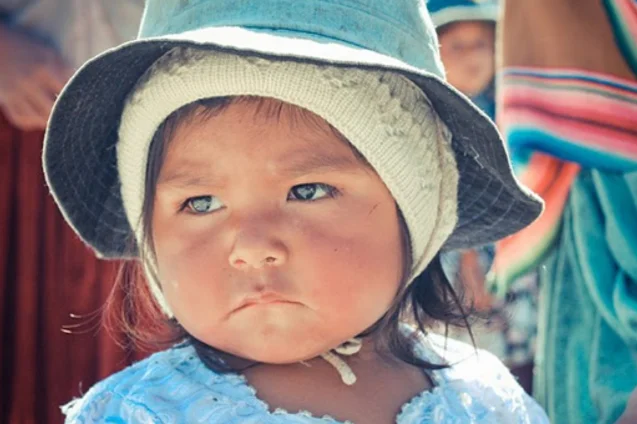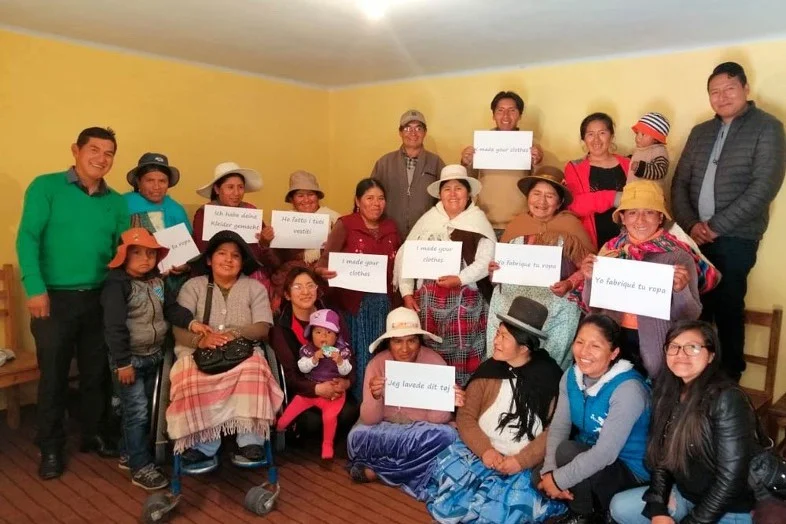Sustainable Bolivia

Sustainable Bolivia (SB) is a 501 (c) 3 international non-profit organization with conservation and sustainable development initiatives in the Bolivian Amazon.
Our Work in the Aquicuana Reserve
we helped secure protection for more than 20,000 hectares of rainforest, establishing the Aquicuana Reserve. Inside the Reserve, we partner with local communities and oversee projects focused on community-based ecotourism, conservation and resource management, and environmental education/research.
Our Work in Riberalta
In the nearby city of Riberalta, SB supports local organizations with volunteer placements and micro-grant funding. We provide local scholarships and organize internships, art residencies, and research opportunities for international students and professionals. We also oversee a Spanish and Indigenous Language School providing instruction in the native Chacobo, Cavineño and Ese Ejja languages.
Sustainable Bolivia has helped securing over 20,000 hectares of forest and river ecosystem in the protected Aquicuana reserve together with the municipality and the local communities.
Protecting the Aquicuana Lake Reserve for future generations in partnership with local communities
This area of remarkable beauty and unsurpassed biologically diversity is now protected from agriculture expansion, ranching, logging, mining and natural resource extraction. Sustainable Bolivia, helps manage and protect the reserve.
To support conservation efforts and provide a sustainable income, SB is working alongside the local government and two communities of Warnes and San José inside the reserve to promote local ecotourism projects and a source of sustainable revenue for the communities.
Sustainable Bolivia’s work
We promote the interests of the Aquicuana Reserve and the local communities through promotion, an online presence and meetings with local authorities and actors in the tourism sector. We also made a strategic plan for Ecotourism in the Reserve to be managed by the communities themselves.
In progress:
- Building a tourist checkpoint and small restaurant at the Reserve entrance (by the end 2018)
- Training tour guides to lead eco-guided tours in the Reserve
- Have running water in the San José community
Future plans:
- Creation of a Technical Ecotourism Institute in the Warnes’ School
- Creation of a Mini Educative Park in the Warnes’ School.
Sustainable Bolivia supports the local communities in Aquicuana in environmental conservation and resource management. We believe that their communities’ well-being is interdependent with that of the surrounding biodiversity and ecosystem, with effects that impact generations to come. Thus, they are a primary stakeholder and participate in planning and designing conservation initiative.
The communities who live in remote villages inside the Aquicuana Reserve depend on the land for food and income throughout the year. The natural environment plays an important role in their health and welfare, which could be threatened by climate change as well as the effects of overfishing, overuse of pesticides, mining and industrial activity – all current environmental threats in Bolivia.
Keeping that in mind, our approach includes:
- Multi-stakeholder collaboration and coordination between all participants: local, communities, the government, and NGOs, and promotes coordination among them.
- Participatory action research – collaborative fact-finding and analysis to generate consensus and action.
- Policy support and law enforcement, which are essential to curbing illegal encroachment leading to ecosystem degradation.
- Collaborative management plans – build shared responsibilities and decision-making among all stakeholders through joint management plans of natural resources. This leads to healthy communities and ecosystems.
- Participatory monitoring and evaluation – promote learning, trust and accountability through monitoring of the natural resource base and application of the management plan.
- Maintaining and improving a hiking trail for the community of San José
Sustainable Bolivia was entitled with maintaining and improving a hiking trail of 4km for the community of San José along the lake. The trail has more than 70 giant trees to be preserved and benches and signalization will be put. This way, the community of San José will be able to use this trail for tourists in its guided tours.
Running Water Project in the community of San José
The Community of San José is an isolated community in the Aquicana Reserve, a 49,421 acre wildlife preserve. There is no running water or electricity in San Jose. Bringing running water to this village would improve the health and well-being of both the community and the surrounding ecosystem.
San Jose is comprised of 27 houses each with one family. The population of San Jose is roughly 150 people. The community largely relies on subsistence farming with some income coming from work found in Riberalta.
Where do they get the water from?
At the moment, they use “Pauros” as drinking water sources in San Jose. A “pauro” is a hand-dug well where clear water collects from a spring. There are 9 drinking water sources spread out throughout 2.19 miles of the main village road. The majority of the village relies on the 4 pauros located along the main part of the village road. Most of the pauros have strong positive pressure and create streams which run off into the lake.
 Albania
Albania Algeria
Algeria Andorra
Andorra Argentina
Argentina Armenia
Armenia Australia
Australia Austria
Austria Azerbaijan
Azerbaijan Bahrain
Bahrain Belgium
Belgium Bolivia
Bolivia Brazil
Brazil Bulgaria
Bulgaria Cambodia
Cambodia Cameroon
Cameroon Canada
Canada Chad
Chad Chile
Chile China
China Colombia
Colombia Costa Rica
Costa Rica Croatia
Croatia Cyprus
Cyprus Czechia
Czechia Denmark
Denmark Ecuador
Ecuador Egypt
Egypt Finland
Finland France
France Georgia
Georgia Germany
Germany Ghana
Ghana Greece
Greece Hungary
Hungary Iceland
Iceland India
India Indonesia
Indonesia Ireland
Ireland Italy
Italy Jamaica
Jamaica Japan
Japan Jordan
Jordan Kazakhstan
Kazakhstan Kenya
Kenya Kuwait
Kuwait Latvia
Latvia Lebanon
Lebanon Libya
Libya Lithuania
Lithuania Luxembourg
Luxembourg Malaysia
Malaysia Maldives
Maldives Mali
Mali Malta
Malta Mexico
Mexico Moldova
Moldova Monaco
Monaco Morocco
Morocco Netherlands
Netherlands New Zealand
New Zealand Nigeria
Nigeria North Macedonia
North Macedonia Norway
Norway Oman
Oman


